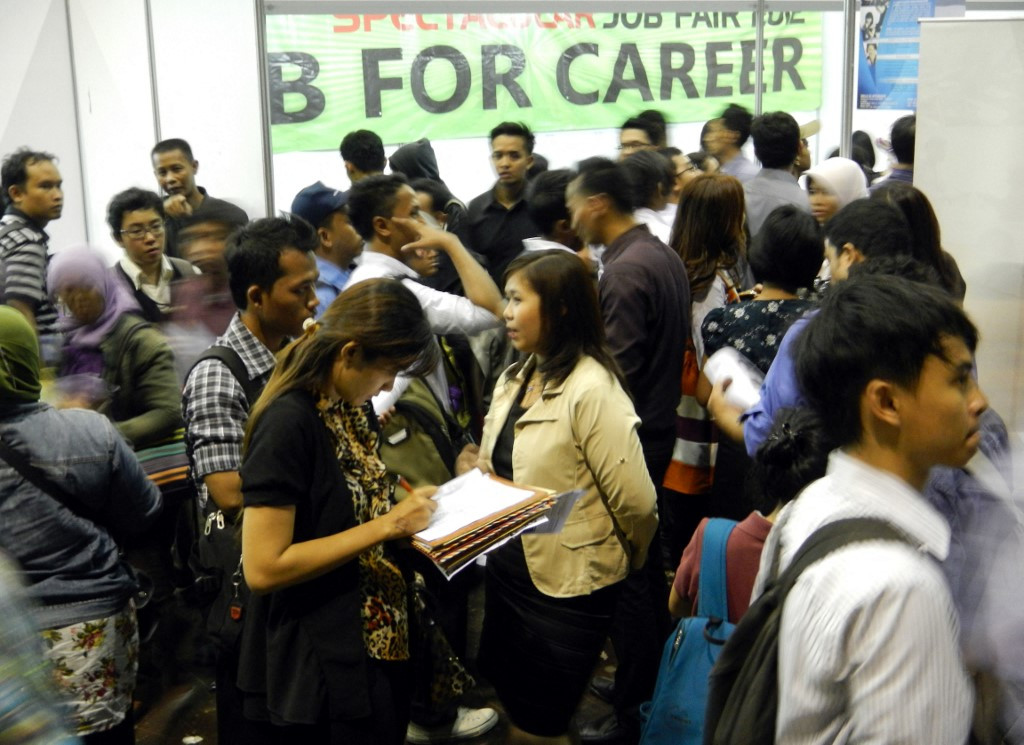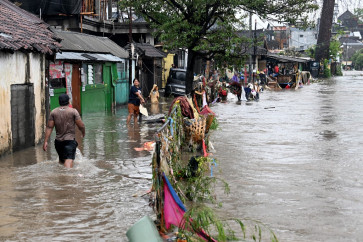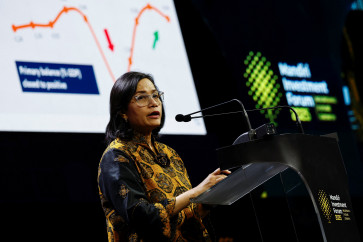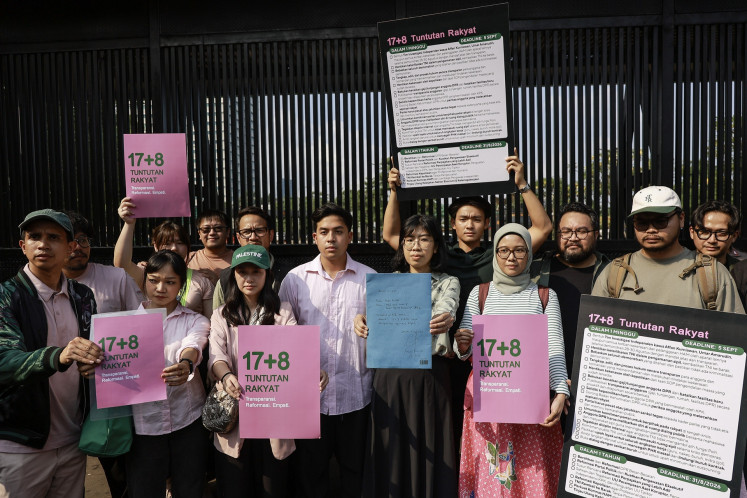Popular Reads
Top Results
Can't find what you're looking for?
View all search resultsPopular Reads
Top Results
Can't find what you're looking for?
View all search resultsAs pandemic recedes, preemployement card prioritizes upskilling workers
In-person training courses for workers resume in at least nine provinces.
Change text size
Gift Premium Articles
to Anyone
As the pandemic has receded and economic activity returns to normal, the government’s preemployment card scheme is prioritizing upskilling workers rather than providing cash assistance to pandemic-hit workers.
"During the pandemic, the preemployment card was semi-social assistance. We had to help people who lost their jobs during the pandemic," the program's executive director Denni Purbasari told reporters on Friday in Cirebon, West Java, on the sidelines of an event with former participants of the program.
This year, she added, the scheme offered face-to-face training courses, starting in at least nine provinces, switching from online classes during the pandemic.
About 100 former beneficiaries from Cirebon and neighboring regions gathered at the Friday event and shared their experiences. The government held the event to hear feedback from the alumni.
One of them was Syarif Fauzi from Indramayu, West Java, who lost his job during the pandemic. Syarif said after taking one training course, he could run five angkringan (food carts).
During the event, Syarif suggested that the government should also provide loans for the program's alumni to start their own small businesses.
Between 2020 and 2022, more than 2.5 million people in Indonesia were laid off, largely on account of pandemic pressures, according to one estimate involving collated data from the Indonesian Employers’ Association (Apindo). The figure is based on the number of people in that period who claimed their retirement savings (JHT), which laid-off workers have the right to access.
The preemployment card program was launched to address a national skills shortage and job mismatch in April 2020, a month after the first confirmed COVID-19 cases were reported in Indonesia.
It was briefly halted after the Corruption Eradication Commission (KPK) found irregularities in the operation of the program, such as mistargeting, poor course curation and potential conflicts of interest.
In late 2020, when the pandemic began to wreak havoc on the economy, the government altered the scheme by prioritizing offering cash assistance to pandemic-hit workers over upskilling courses. Under this scheme, each eligible recipient received Rp 600,000 (US$39.90) in cash assistance a month for four months after completing at least one online class. Beneficiaries receive Rp 1 million to pay for training courses.
This year, the government returned the program to its original purpose by increasing the proportion of the training subsidies. An eligible participant receives a total of Rp 4.2 million, divided into Rp 600,000 in cash assistance and Rp 3.5 million to pay for courses, as well as Rp 100,000 received after they fill out the program's surveys.
Seeing that the program has helped beneficiaries get jobs or start their own business, the government targets 1 million preemployment card beneficiaries with a total budget of Rp 4.37 trillion for the 2023 program, according to Coordinating Economic Minister Airlangga Hartarto who oversees the program.
This target is the same as last year, he added, without revealing why.
The program, which was mired in irregularities early on, is now being hailed by some government officials as a model of clean and effective e-governance, unlike recent deliveries of direct social aid (bansos), which are under scrutiny by the KPK.
"The preemployment program that uses the government-to-people [payment] can be a model for other government services," Airlangga said in Cirebon.
In response to proposals that emerged during the event, Airlangga said the government was actually already considering offering a microcredit program (KUR) for former participants of upskilling courses of the preemployment card initiative.
The government claimed that the preemployment card scheme had contributed close to Rp 240 billion in non-tax revenue in the three years since it was established.










